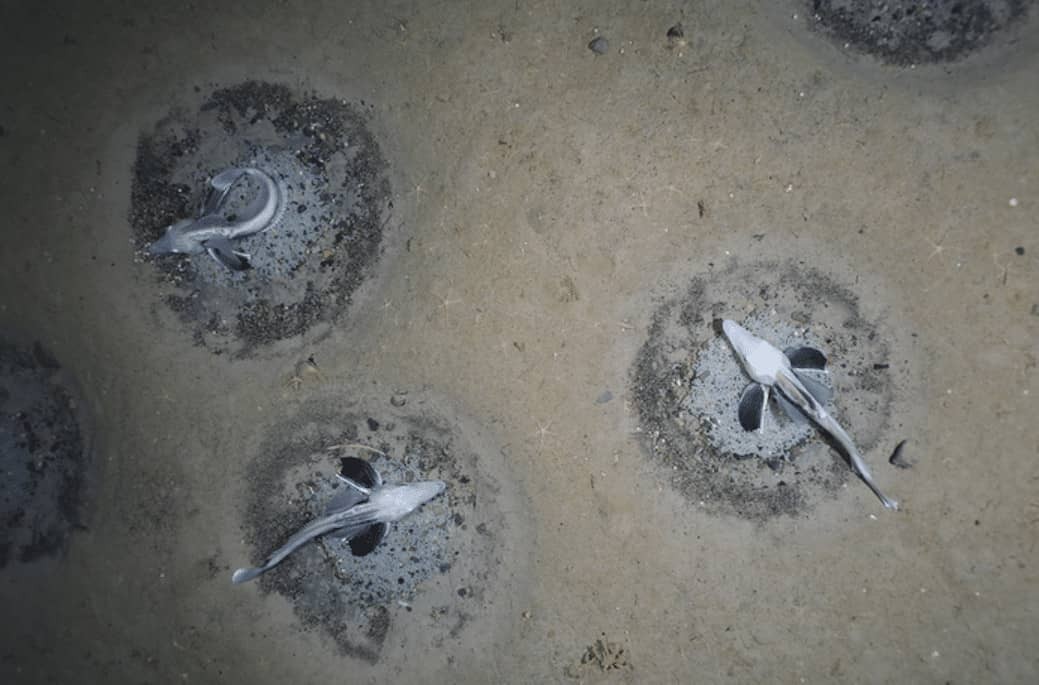A research team has discovered the world’s largest known fish breeding area located in the southern Antarctic Weddell Sea.
A towed camera system photographed and filmed thousands of nests of icefish (“Neopagetopsis ionah“) on the seabed. The density of the nests and the size of the entire breeding area suggest a total number of about 60 million icefish breeding at the time of observation.
In February 2021, researchers viewed numerous fish nests on the monitors aboard the German research vessel Polarstern, which their towed camera system transmitted live to the vessel from the seabed, 535 to 420 meters (1,755 to 1,378 feet) below the ship.
The longer the mission lasted, the more the excitement grew, finally ending in disbelief: nest followed nest, with subsequent analysis showing there were on average one breeding site per three square meters (32 square feet), with the team even finding a maximum of one to two active nests per square meter.
A team led by Autun Purser from the Alfred Wegener Institute published their results in the current issue of the scientific journal Current Biology.
According to Purser:
“The idea that such a huge breeding area of icefish in the Weddell Sea was previously undiscovered is totally fascinating.”
Deep-sea biologist Prof. Antje Boetius, who wasn’t involved in the study, says it’s a sign of how urgent it is to establish marine protected areas in Antarctica:
“Considering how little known the Antarctic Weddell Sea is, this underlines all the more the need of international efforts to establish a Marine Protected Area (MPA).”
She continues:
“Unfortunately, the Weddell Sea MPA has still not yet been adopted unanimously by [the international Commission for the Conservation of Antarctic Marine Living Resources]. But now that the location of this extraordinary breeding colony is known, Germany and other CCAMLR members should ensure that no fishing and only non-invasive research takes place there in future.
“So far, the remoteness and difficult sea ice conditions of this southernmost area of the Weddell Sea have protected the area, but with the increasing pressures on the ocean and polar regions, we should be much more ambitious with marine conservation.”

